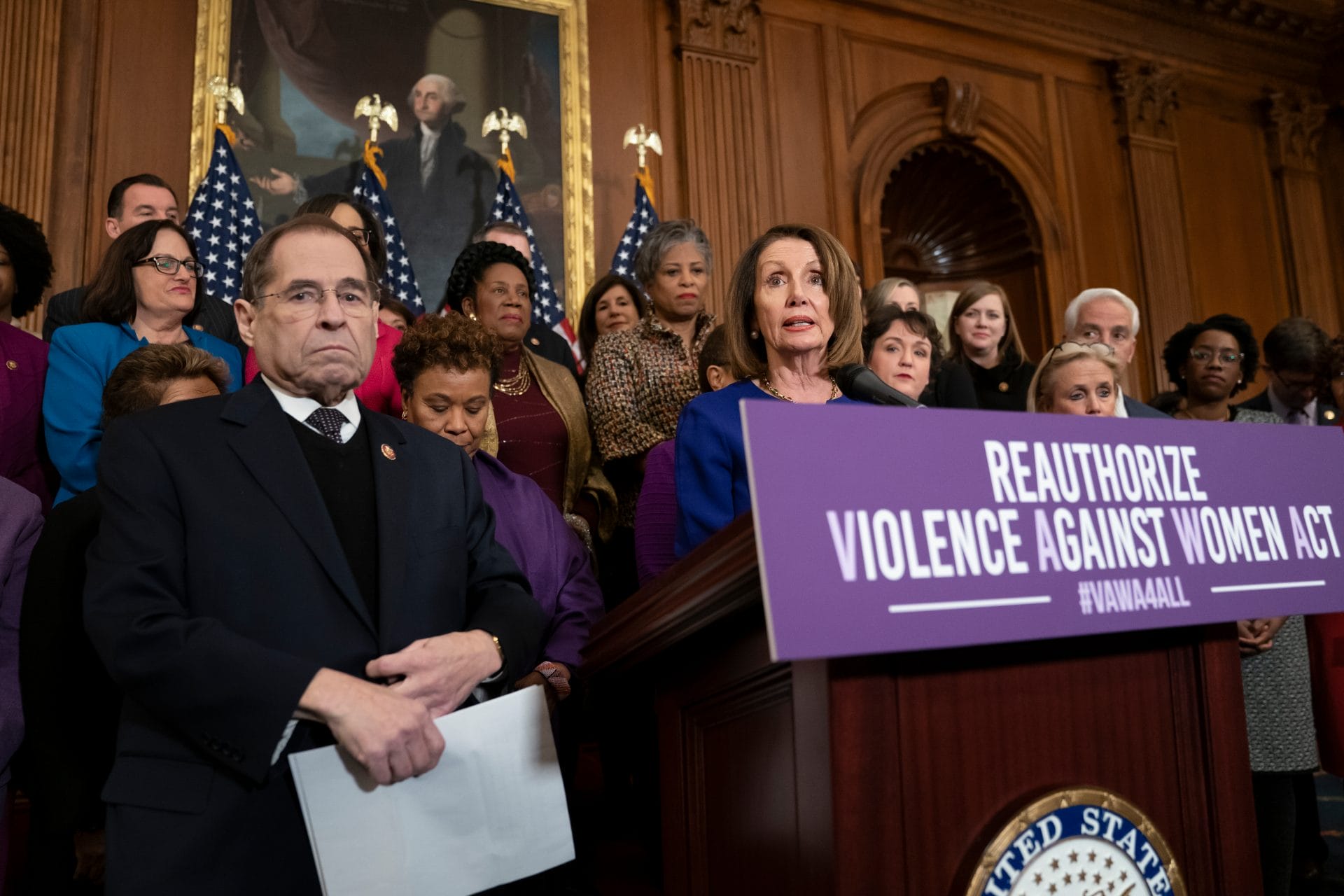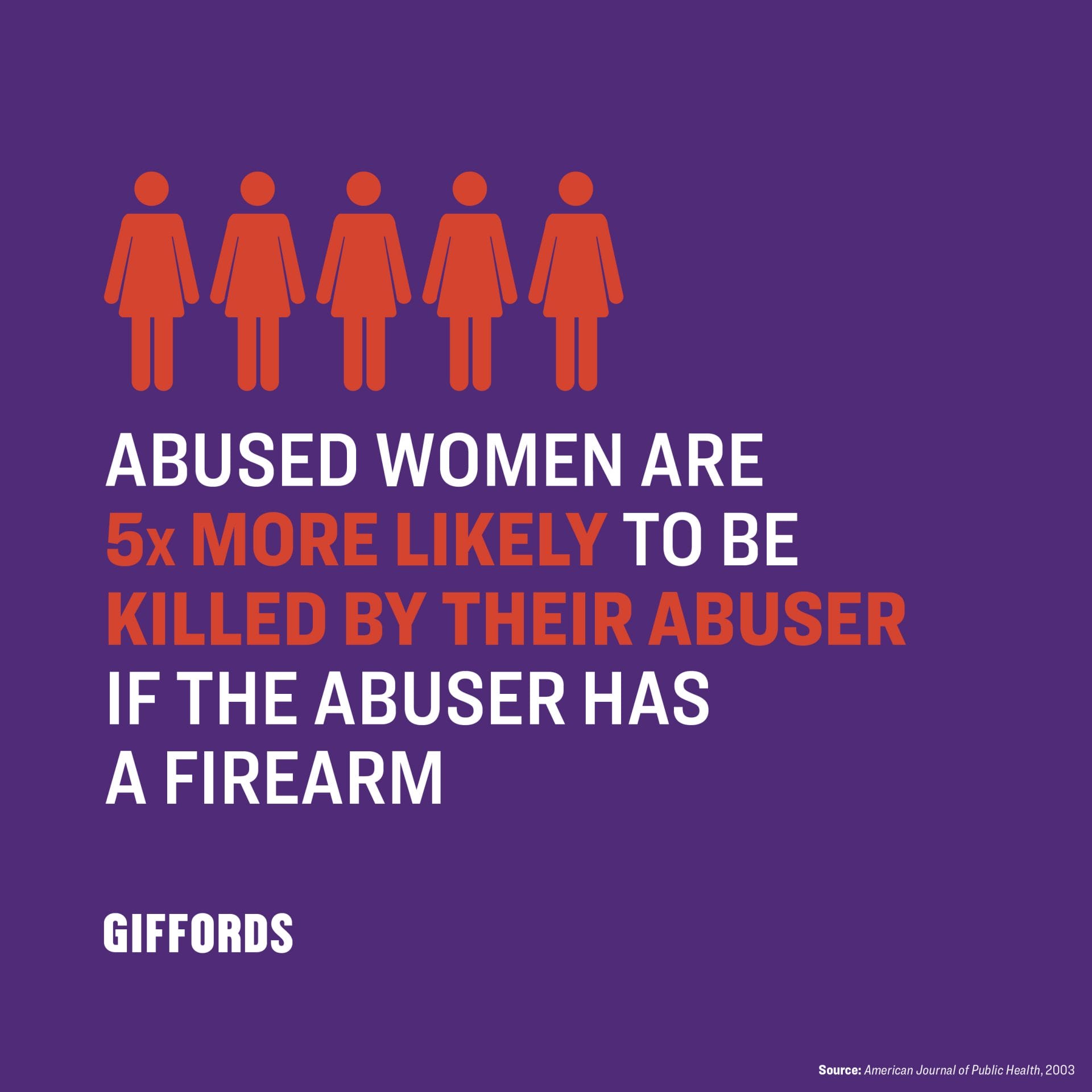
Abusive Boyfriends Shouldn’t Be Allowed to Own Guns. But They Are.
One woman was shot dead along with her two relatives. Their bodies were found in a home in Indiana that had been set on fire. Another woman—a mother of three—went missing in Hawaii. Her purse turned up in a dumpster, but her body was never found. Another woman is recovering from a gunshot wound in a hospital in Alabama. A fourth woman died in her car in New York.
What do these cases all have in common? They all exhibit a pattern: A woman is shot with a gun by her boyfriend or ex-boyfriend.
These incidents are examples of a tragic, yet preventable, phenomenon.
Each year, at least 600 women in America are shot and killed by an intimate partner. About half of these shooters had dated but not married their victims.
This violence is exacerbated by a gap in federal gun laws known as the “boyfriend loophole.” Federal law only prohibits gun possession by domestic abusers in certain circumstances. These provisions, enacted in the 1990s, apply to abusers convicted at the misdemeanor level and abusers subject to restraining orders. For these abusers, gun possession is restricted only if that abuser has been married to, lived with, or had a child with the victim.
This limitation means the law does not generally apply to abusive boyfriends and ex-boyfriends even if those boyfriends or exes have been convicted of abuse or are subject to a restraining order.
This leaves too many women in danger.
As the tragic examples above illustrate, many women are abused by individuals they had a romantic relationship with but never married, lived with, or had a child with. In many cases, the boyfriend’s abuse led to a criminal conviction, or the woman obtained a restraining order against him. By cooperating with police or seeking an order from a court, the woman has done everything right to protect herself and her family.
Yet our weak federal gun laws fail to protect her. Her abuser is legally able to walk into a gun store, pass a background check, and obtain a firearm. This puts women’s lives at risk.
Why should a woman who does not marry or move in with her abuser be less protected? Why should it matter if the couple had a child? The danger that the abuser will use a gun to inflict deadly force against the victim is the same. Yet the law leaves those victims vulnerable.

The dangerous nexus between domestic violence and firearms is well-documented. A gun in the hands of an abuser makes a woman five times more likely to be killed. An abuser’s access to a gun puts other family members in danger too, since the abuser often ends up lashing out at and even harming others in the vicinity.
For years, domestic violence and gun violence prevention advocates have pushed the federal government to close the dangerous boyfriend loophole. While many states have taken action to close this gap, Congress has not addressed the issue nationwide.
In April 2019, the House of Representatives passed a reauthorization bill for the Violence Against Women Act that would do just that. But Senate Republicans refuse to consider these lifesaving provisions. Senate Democrats, however, stood up to introduce their own bill that reflects the House’s priorities. We don’t have time for partisan games. With the lives of domestic violence survivors across the country on the line, every minute counts.